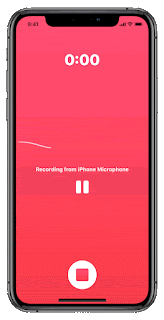by Gary L. Wickert
One-Party Consent
If the consent of one party is required,
you can record a conversation if you’re a party to the conversation. If
you’re not a party to the conversation, you can record a conversation
or phone call provided one party consents to it after having full
knowledge and notice that the conversation will be recorded...
All-Party Consent
Twelve (12) states require the consent
of everybody involved in a conversation or phone call before the
conversation can be recorded. Those states are: California, Connecticut,
Florida, Illinois, Maryland, Massachusetts, Michigan, Montana, Nevada,
New Hampshire, Pennsylvania and Washington. These laws are sometimes
referred to as “Two-Party” consent laws but, technically, require that
all parties to a conversation must give consent before the conversation
can be recorded.
Consent
What constitutes “consent” is also an
issue of contention when you are considering recording a conversation.
In some states, “consent” is given if the parties to the call are
clearly notified that the conversation will be recorded, and they engage
in the conversation anyway. Their consent is implied. For example, we
have all experienced calling a customer service department only to hear a
recorded voice warning, “This call may be recorded for quality assurance or training purposes.”
It is usually a good practice for practitioners to let the witness know
they are recording the call in order to accurately recall and
commemorate the testimony being given – such as during the taking of a
witness’ statement.
Exceptions
Nearly all states include an extensive
list of exceptions to their consent requirements. Common exceptions
found in a majority of states’ laws include recordings captured by
police, court order, communication service providers, emergency
services, etc...
Interstate/Multi-State Phone Calls
Telephone calls are routinely originated
in one state and participated in by residents of another state. In
conference call settings, multiple states (and even countries) could be
participating in a telephone call which is subject to being recorded by
one or more parties to the call. This presents some rather challenging
legal scenarios when trying to evaluate whether a call may legally be
recorded. A call from Pennsylvania to a person in New York
involves the laws of both states. Which state’s laws apply and/or
whether the law of each state must be adhered to are questions parties
to a call are routinely faced with...
Federal Law
In
most cases, both state and federal laws may apply. State laws are
enforced by your local police department and the state’s attorney
office. Federal wiretapping laws are enforced by the FBI and U.S.
Attorney’s office. It is a federal crime to wiretap or to use a machine
to capture the communications of others without court approval, unless
one
of the parties has given their prior consent. This means that if you
are initiating a recording on a call that you are participating in, the
other party does not need to be notified that the call is being
recorded. It is likewise a federal crime to use or disclose any
information acquired by illegal wiretapping or electronic eavesdropping.
moreMore information on the laws in all 50 states regarding the recording of phone conversations found here.























